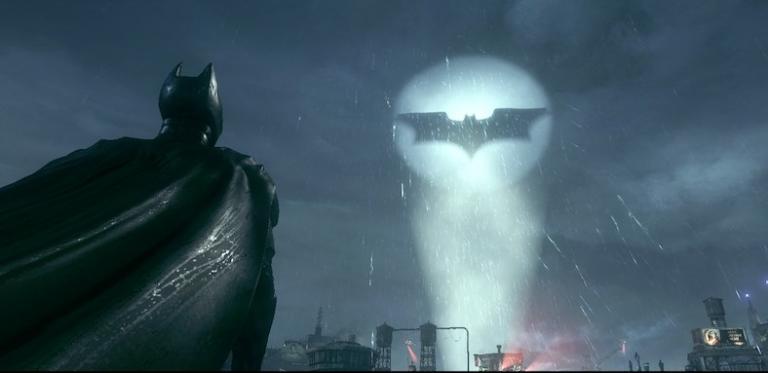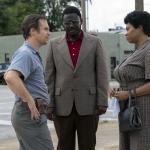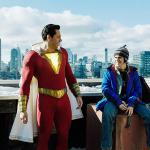
If Batman throws a party to celebrate his 80 years in action, I’m hoping Zack Snyder misses the invite. Pretty sure he’d pour wine on the couch, give Alfred a noogie and draw crayon glasses on the portrait of Thomas Wayne.
You remember Snyder, the guy who Warner Bros. put in charge of its D.C. Extended Universe until WB thought better of it. Before he left, Snyder turned Superman into a killer in Man of Steel. Then, in Batman v. Superman: Dawn of Justice, he stuck a gun in Batman’s hands and had him embark on a surreal, imaginary killing spree.
These sorts of decisions got him in trouble with many a Batman/Superman purist, who argued that these superheroes don’t kill and Batman sure doesn’t play with guns.
I’ve been more forgiving of Snyder’s decisions than some, I suppose: Batman’s excesses in Batman v Superman seem done with an eye toward the character’s repentance and, in a way, redemption. But now I’m not so sure.
Just in time for Batman’s 80th anniversary (on March 30), Snyder’s telling us that Batman’s just a big ol’ jerk. In a recent Q&A, he said:
Someone says to me, Batman killed a guy. I’m like, ‘f—, really? Wake the f— up. I guess that’s what I’m saying. Once you’ve lost your virginity to this f—ing movie and then you come and say to me something about like ‘my superhero wouldn’t do that.’ I’m like ‘Are you serious?’ I’m like down the f—ing road on that. It’s a cool point of view to be like ‘my heroes are still innocent. My heroes didn’t f—ing lie to America. My heroes didn’t embezzle money from their corporations. My heroes didn’t f—ing commit any atrocities.’ That’s cool. But you’re living in a f—ing dream world.
Before we dive into those comments, let’s make an admission: Batman hasn’t always been the nicest of guys. In his very first appearance, he punches a villain in the face, who plunges into a vat of acid. Bats doesn’t seem too bummed. “A fitting end for his kind,” he says grimly. And other iterations of Batman have veered a bit from Batman’s vaunted no killing, no gun code. Tim Burton’s version of the Dark Knight in 1989’s Batman didn’t use a handgun, but his nifty Bat Plane sure seemed to fire bullets. And He didn’t go out of his way to rescue the Joker from falling to his death, either.
But here’s the deal: After Batman’s first few comic book outings, the superhero’s makers reined him in—so much so that Batman’s aversion to both killing and guns became synonymous with the character. It came to separate him from the villains he fights, and that’s important, especially when sometimes the line between hero and villain can feel pretty thin. In fact, I think it’s a big reason why Batman has been so popular for so long. We understand that he’s not just battling the bad guys: He’s fighting with himself, too. Yes, he’s a dark, brooding vigilante with sometimes troubling impulses, but he wants to stand for something better.
Snyder’s take on superheroes is pretty dark itself. They, and we, can’t overcome our weaknesses. They can’t be better. In his comments, he seems to be saying that he wanted to give the world a more realistic superhero/billionaire who dresses in a bat outfit and fights man-crocodile hybrids. He wants the Justice League to be more like D.C.’s Watchmen—Alan Moore’s famed deconstruction of superheroes that Snyder turned into a movie in 2009.
The movie wasn’t all that great, by the way. Maybe, with Justice League, Snyder just wanted another shot?
Listen, I think I understand some of Snyder’s rationale. Batman, Superman and Wonder Woman—D.C.’s vaunted triumvirate of superheroes—were born and came of age in, if not a more innocent age, certainly a more trusting one. They flexed their muscles in World War II, while the United States fought Nazi Germany. They anchored curious superhero “families” when the Greatest Generation was raising families of their own. They are heroes made in a time of heroes, when we Americans thought that America itself was an unblemished force for good in the world—a tireless champion for truth, justice and … well, the American way. Maybe the country wasn’t perfect. But heck, it was pretty close, and certainly way better than whatever was going on behind the Iron Curtain.
We’re more cynical about our country today. We’ve gone through Vietnam and Watergate. We didn’t find WMDs in Iraq. Our faith in the country’s leaders and institutions is, perhaps, at an all-time low. Maybe Snyder’s suggesting that our flawed society needs flawed superheroes. Or, to paraphrase Commissioner Gordon in The Dark Knight, he wants to give us the heroes we deserve.
But maybe those aren’t the heroes we need.
As I wrote in my book God on the Streets of Gotham, Batman’s appeal isn’t that of Superman—a salvific character so moral that he almost doesn’t seem human (and of course, technically, he’s not). It’s not that of, say, Marvel’s The Punisher—an Old Testament-like angel of death meting out terminal retribution to his enemies. Batman walks the muddy middle ground between the two. Just as Batman doesn’t have any superpowers to speak of, he doesn’t pretend to be a saint: As Batman himself tells us in one comic, “Deep down, Clark’s essentially a good person … and deep down, I’m not.”
That’s very Christian, you know. Deep down, none of us are “good people.” We’re flawed and fallen. We’re prone to temptation and sin, and sometimes we do things that we’re ashamed of.
But we also know that, through God, we can be better. Like Batman, we try to hold to a set of rules and ideals that are higher than ourselves—even when they’re tough to follow. Like Batman, we see the world as the fallen place it is, and we hopefully try to make our little corner of it a little bit better. Like Batman, we want to be one of the good guys. Even though sometimes, deep down, we realize we’re not.
We don’t need our fictional heroes to kill or embezzle or cheat. We see plenty of people in the real world do that. We need to see people—in the real world, if possible, in fictional ones if we must—who don’t do those things. Those who strive to do what’s right even when it’s hard. Who fight the good fight, sometimes fail and still get up to fight again.
We need Batman—not Zack Snyder’s Batman, but the one that 80 years of history has turned into one of America’s most enduring folk heroes. We don’t need to be told the world is a rotten place filled with rotten people. We need to be told that it—and we—can be better.













